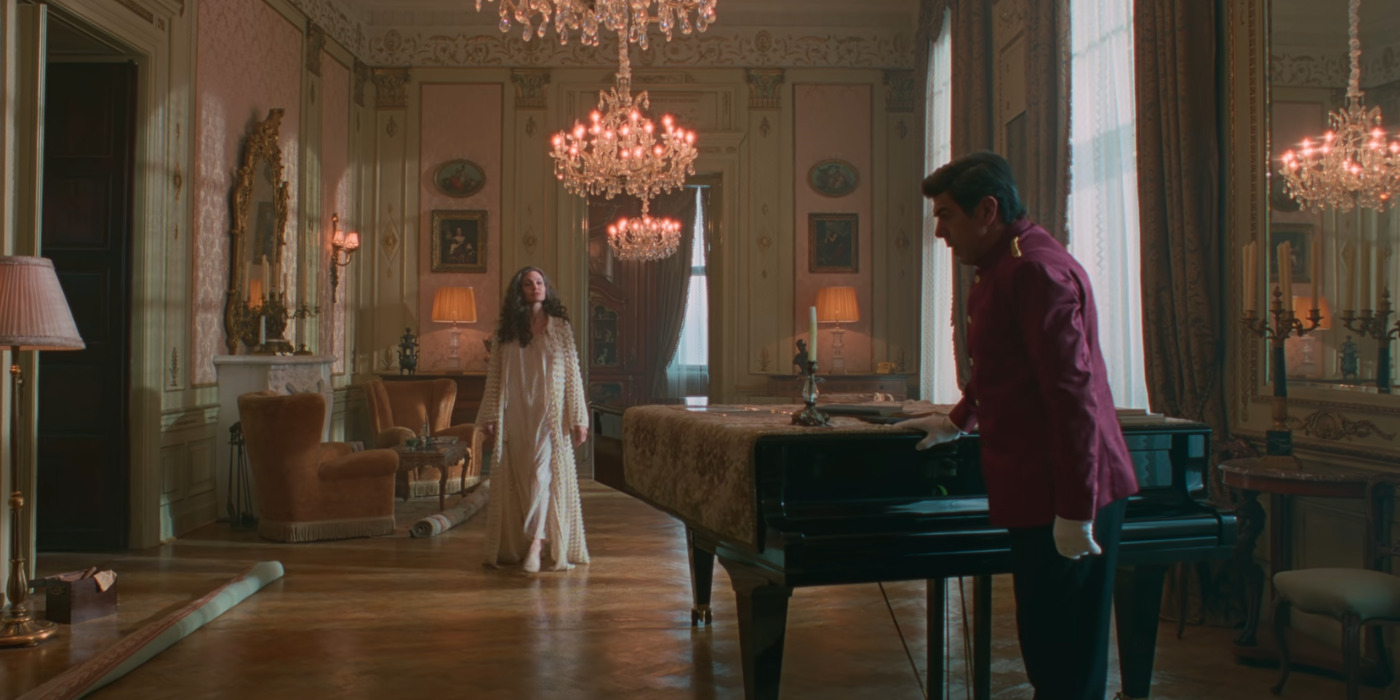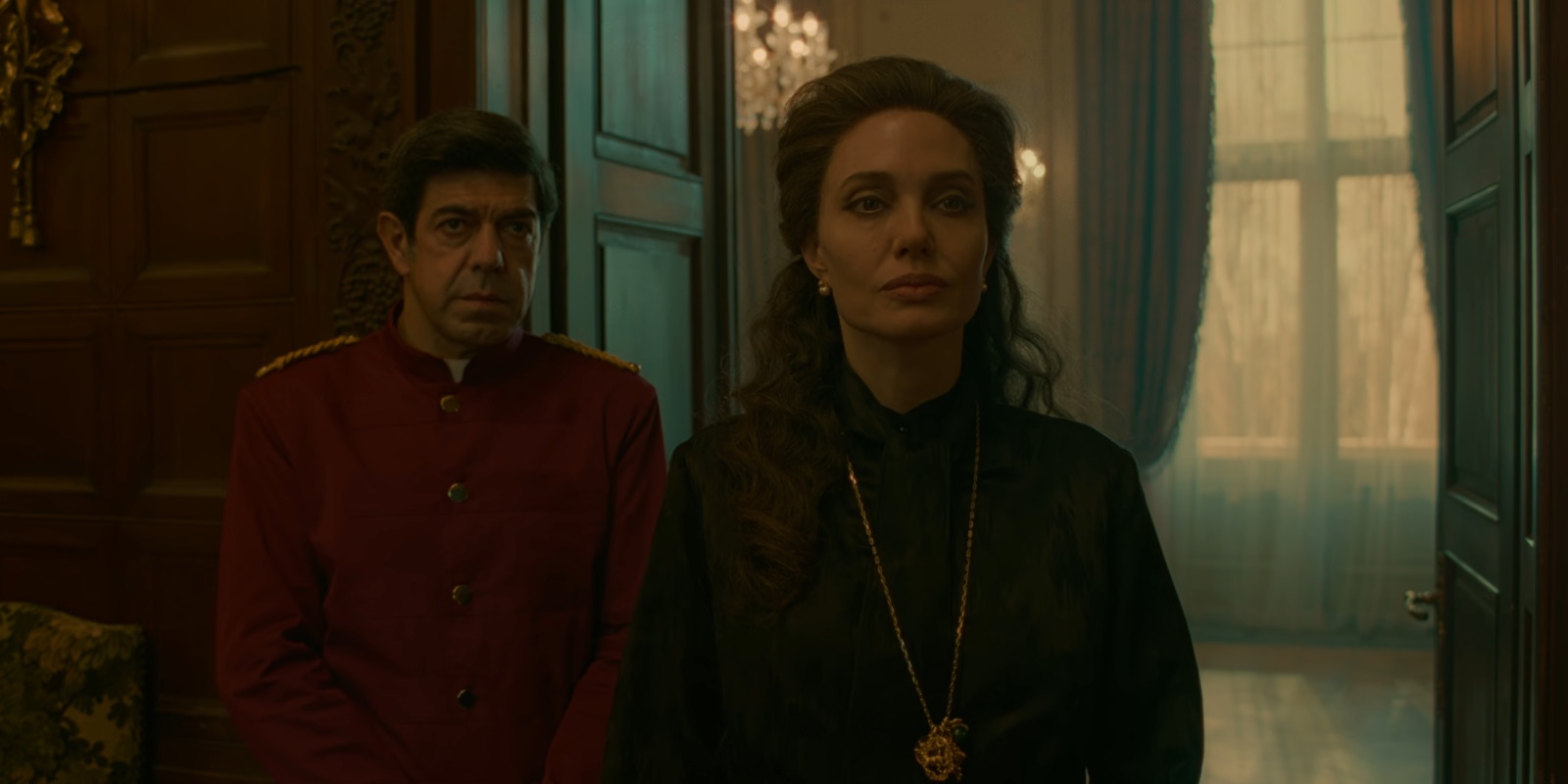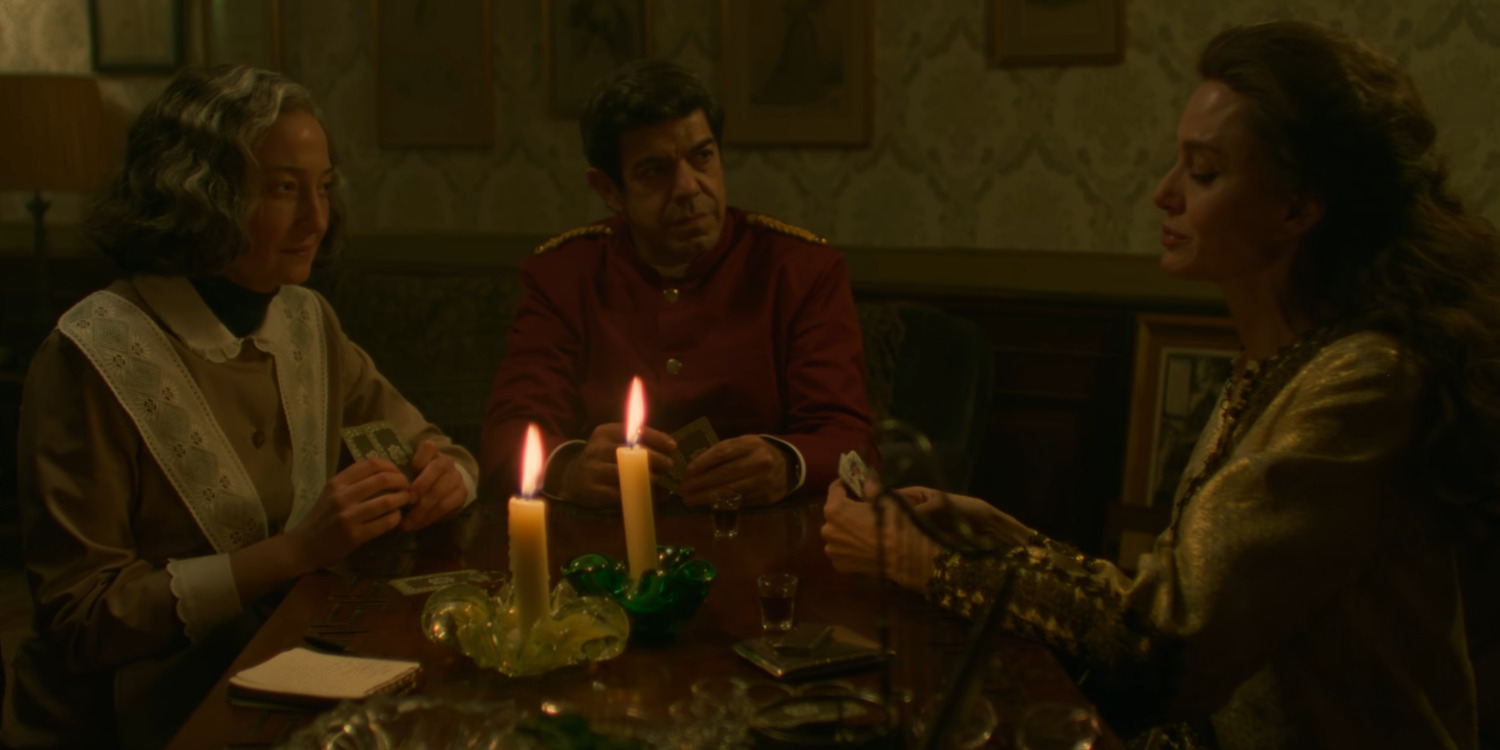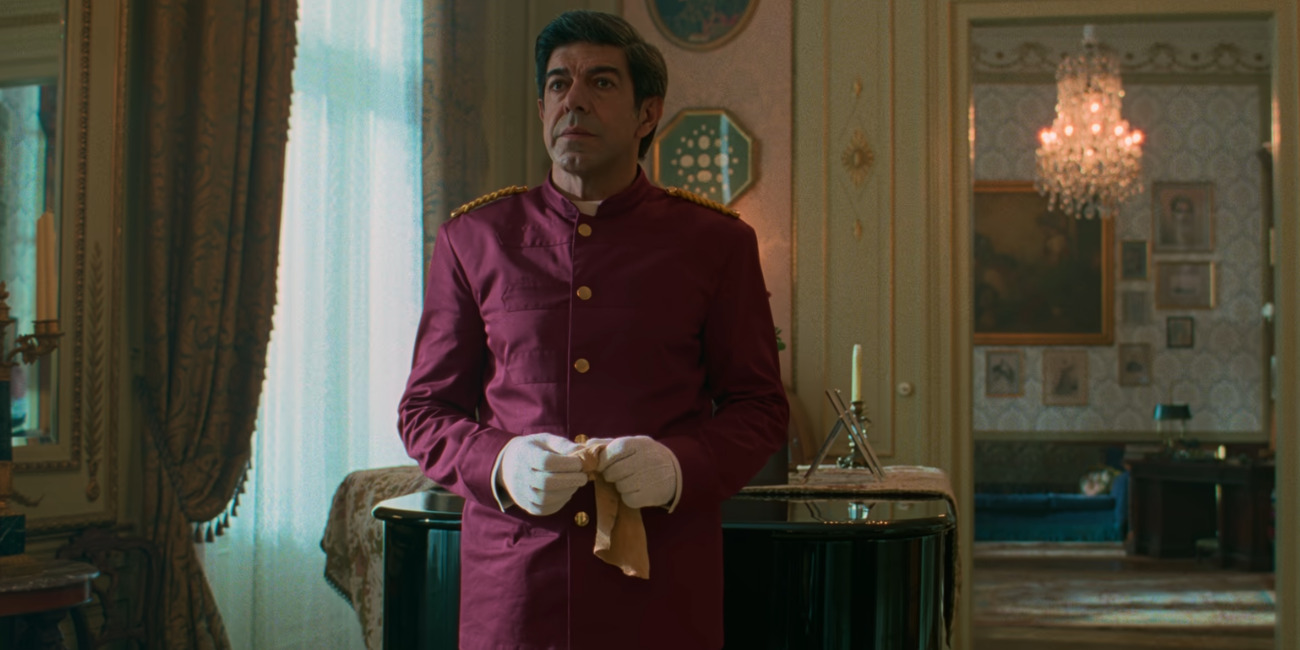‘Maria’ offers the audience an expansive peek into the life and personhood of Maria Callas, a celebrated Opera Singer of the 20th century. It follows the life of the renowned historical figure as it teeters toward the end of her days in 1970s Paris. Maria, no longer putting out stage performances due to her damaged singing voice, seeks out a journey of self-actualization as she remains withdrawn in her reclusive lifestyle. In her apartment, Ferruccio and Burna, the butler and the housekeeper, and her dogs are her only companions—except for a journalist who shows up from time to time.
Maria’s current home life remains lackluster, especially when compared to the glamor of her past. However, one of her reliably consistent habits—asking Ferruccio to move the piano almost every day—keeps things interesting at her home. While the protagonist’s inclination toward the hefty instrument’s relocation remains clear, the motive behind the same does not.
Maria Relies on the Consistency of The Piano’s Move
The story never directly addresses Maria’s constant need to have the grand piano at her apartment moved from one place to another. The Prima Donna opera singer simply wakes every day with a new whim for the piano’s placement. One day, a particular room suits it best, and the other, it shines brightest under a certain window. Since Ferruccio and Burna are the only other people inhabiting her home at any given time, the responsibility for his redecoration falls upon the butler’s aging back. In fact, one of the only times we see Maria disregard this routine is when she learns of the severity of Ferruccio’s bad back.

Maria doesn’t ask Ferruccio to move the piano around to aggravate the butler. Yet, at the same time, there isn’t a particular rational reason behind it. In her solitary, Maria has all but given up on socialization. Her apartment has never been visibly visited by others in her lifetime and, thus, doesn’t necessarily require repeated spruce-ups. Likewise, despite being a professional musician who learned the instrument young, Maria never actually plays the piano on screen. Therefore, her attachment to having the piano moved isn’t necessarily backed by reason.
However, as Maria herself states, there is no reason in Opera. Perhaps there isn’t a definitive reason behind the artist’s fleeting fancies for the piano to be moved from one room to another. Nonetheless, it is possible that she simply craves the ruckus and the chaos that the troublesome routine brings into her life. In that way, the piano can be seen as an unconventional tool to bring life to Maria’s otherwise soulless apartment.

Furthermore, it also highlights the diva characteristics of the opera singer that Maria was so famously known for throughout her career. Even though she has no intentions of picking up the instrument again, she regularly has it moved just because she can. It almost becomes a quirk of her apartment and, by extension, herself. For the same reason, on days when she is less fanciful and more considerate, she spares Ferruccio the trouble of the ordeal.
The Piano Showcases Ferruccio’s Selfless Care For Maria
Throughout the narrative, Ferruccio and Maria sport one of the most powerful interpersonal dynamics. While Maria was at the height of her career, she had adoring fans, a husband, and a lover to occupy the frame beside her. Nonetheless, in her recluse, she has little company. Therefore, Ferruccio, her longtime butler who has a genuine concern for her, becomes one of her greatest companions—along with her housekeeper, Burna. On numerous occasions, Ferruccio and Burna attempt to look out for the opera singer in a number of ways.

Thus, the piano becomes one such expression of their love. Ferruccio and Burna don’t require a firm reason for Maria to move her furniture for her. They entertain her demands—however much of a diva they may paint her as—because they understand and care for her beyond reason. At times, they even expect the act to become a source of happiness or at least satisfaction for the woman, which seems incentive enough for them. The same remains further evident in their mounting concern for her health, for which they regularly perform acts that go against Maria’s wishes.
In turn, Maria is only annoyed by the liberties they take because she knows of their true love for her. As such, the piano and its consistent movement become a straightforward narrative and visual tool for expressing Ferruccio, Burna, and Maria’s unique relationship. Ultimately, the piano and its restless disposition remain a running gag throughout the film, offering a distinct personality and characterization to the tale.
Read More: Maria: Is Mandrax a Real Medication? Is Mandrax a Real Journalist?


You must be logged in to post a comment.